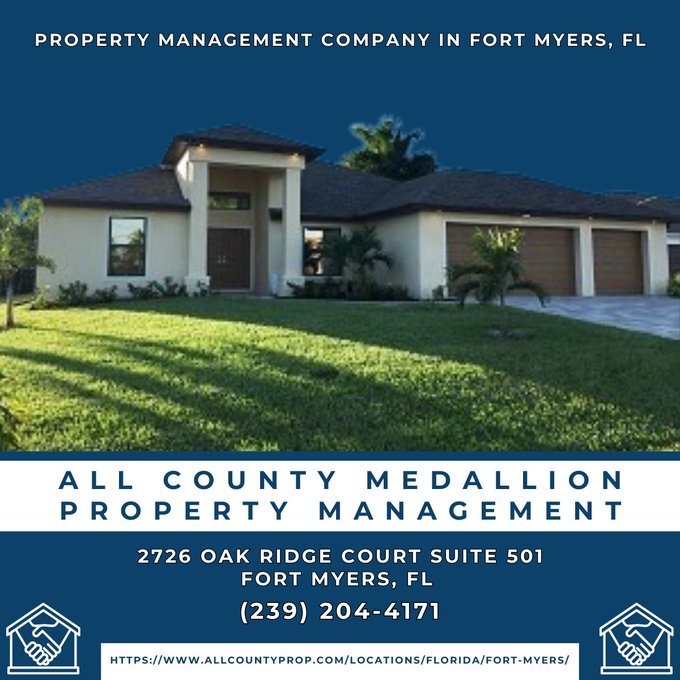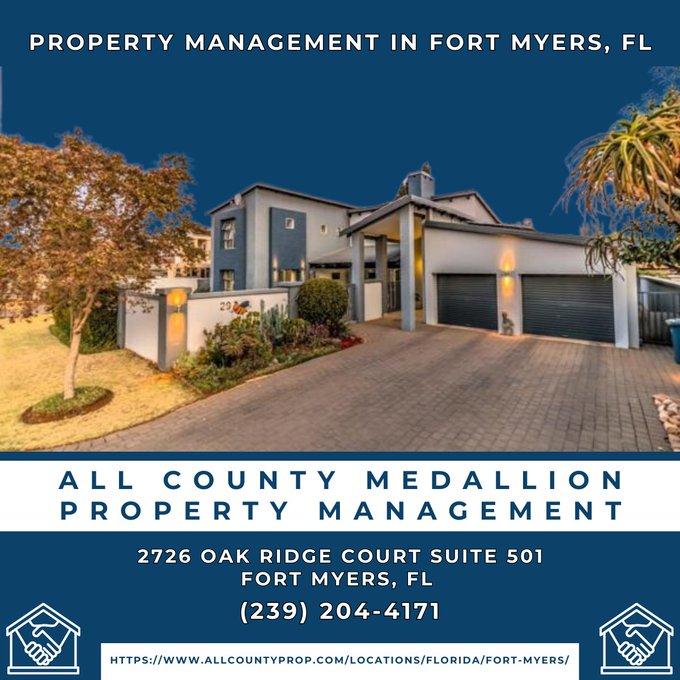Managing a property can be a daunting task, especially if you're unfamiliar with the various management fees associated with the process. From residential to commercial properties, real property management All County Medallion Property Management understanding the types of management fees and what they entail is crucial for landlords and property owners alike. This comprehensive guide will delve into the world of property management fees, helping you determine which one is right for you.
Understanding Property Management Fees
When it comes to managing your properties, you'll likely encounter several types of fees. These management fees cover a range of services provided by property managers to ensure your investment operates smoothly.
What Are Property Management Fees?
Property management fees are charges levied by property managers for overseeing residential or commercial properties on behalf of the owner. The services included in these fees can vary significantly based on the company and the specific agreement in place.
- Scope of Services: Typically, these services may encompass tenant screening, rent collection, maintenance coordination, financial reporting, and more. Flat Rate vs. Percentage Fee: Management fees can be structured as a flat monthly rate or a percentage of the rental income.
Types of Management Fees
Percentage-Based Fee- This is one of the most common fee structures in property management. Most companies charge between 8% and 12% of the monthly rent collected.
- Some property managers offer a flat monthly fee regardless of rental income, which can be beneficial if your rental income fluctuates significantly.
- This one-time charge covers administrative costs associated with setting up your account with the management company.
- This fee is charged when a new tenant is placed in a unit and typically ranges from 50% to 100% of one month's rent.
- Many property managers will charge an additional markup on maintenance services rendered to ensure profit margins on repairs and upkeep.
- A fee charged when renewing a lease with an existing tenant; this often ranges from $200 to $500.
- If eviction becomes necessary, property managers may charge an additional fee for handling legal processes related to tenant evictions.
- Regular inspections may incur additional costs; some companies include this service in their overall fee while others do not.
What Is Included in the Management Fee?
Understanding what’s included in your management fee can help you avoid unexpected costs down the line. Here’s what you might typically expect:
- Tenant Screening: Comprehensive background checks including credit history. Rent Collection: Handling all aspects related to collecting rent from tenants. Maintenance Coordination: Managing repairs and maintenance requests from tenants. Financial Reporting: Monthly statements detailing income and expenses related to your property.
How Do I Calculate Management Fees?
Calculating your potential management fees involves understanding both your rental income and any additional charges that may apply:
Determine your monthly rental income. Multiply this amount by the percentage charged by your management company (if applicable). Add any flat-rate charges or additional fees that might apply (like leasing or inspection fees).For example:
- If your rental income is $1,000 per month and your manager charges 10%, then: [ \textManagement Fee = \$1,000 \times 0.10 = \$100 ]
What Is the Average Property Management Fee in Florida?
If you’re considering hiring a property manager in Florida, knowing the average cost can help set expectations:
- The average property management fee in Florida typically ranges from 8% to 12% of monthly rent collected.
Additional Considerations
- Factors such as location (Miami vs Fort Myers), type of property (residential vs commercial), and level of service will influence these figures.
How Much Does Property Management Cost Texas?
In Texas, like Florida, typical rates also fluctuate based on various factors:
The average cost generally lies between 8% to 12%. Some firms might offer lower rates for larger portfolios or long-term contracts.
Comparative Analysis
| State | Average % Fee | |------------|---------------| | Florida | 8% - 12% | | Texas | 8% - 12% | | Georgia | ~10% |
How Do I Find a Good Property Manager in Florida?
Finding a reliable property manager requires research:
Ask for Recommendations: Start by asking friends or real estate professionals for referrals. Check Online Reviews: Websites like Google Reviews or Yelp can provide insights into other clients' experiences. Interview Candidates: Ask potential managers about their experience handling properties similar to yours.Questions To Ask During Interviews
- What are their average response times? How do they handle tenant disputes? What services are included in their management fee?
What Is The Biggest Responsibility For Property Management?
The primary responsibility lies in effectively managing tenants while maintaining the property's value:
Tenant Relations: Ensuring good communication and resolving issues promptly. Financial Oversight: Keeping accurate financial records and ensuring timely rent collection. Maintenance Oversight: Coordinating repairs swiftly to maintain tenant satisfaction.What Do Most Property Managers Make?
The earnings for property managers vary widely across different states and types of properties managed:
- On average, residential property managers earn around $50,000 annually; commercial managers often earn significantly more due to increased responsibilities.
Average Salary Breakdown By State
| State | Average Salary | |-------------|----------------| | Florida | $48,000 | | Texas | $55,000 | | Georgia | $45,000 |
Is A 1% Management Fee High?
A management fee set at just 1% could seem appealing at first glance but may indicate limited services offered:
- Generally speaking, reputable companies tend to charge between 8%-12%. It's essential to compare what services are included before making decisions solely based on price.
What Percentage Does Management Take?
Most property managers typically take between 8%-12%, depending on various factors such as market demand and service offerings:
Key Takeaways
- Lower percentages do not always guarantee better value; assess service quality alongside cost.
FAQ Section
Q1: What state has the most property management companies?
A1: California leads with numerous firms catering specifically to its vast real estate market.
" width="560" height="315" frameborder="0" allowfullscreen>
Q2: How much should I pay in management fees?
A2: Generally between 8%-12% is considered standard; however, tailor expectations based on specific needs and market conditions.
Q3: Can you claim management fees on taxes?
A3: Yes! Many owners deduct these expenses against taxable income generated from their rental properties.
Q4: How much does property management cost in Washington state?
A4: In Washington state, expect averages similar to those found nationally—around 10%-15%.
Q5: What is included in typical service agreements with managers?
A5: Agreements usually cover tenant placement/screening/eviction assistance/maintenance coordination/financial reporting among others!
" width="560" height="315" frameborder="0" allowfullscreen>
Q6: Is starting my own property management business viable today?
A6: Absolutely! With careful planning & market property management Fort Myers research coupled with solid customer service strategies—you have excellent chances at success!
Conclusion
Navigating through different types of management fees can feel overwhelming at first glance; however understanding them enables landlords/property owners alike make informed decisions tailored toward specific needs!
Whether opting for percentage-based structures or fixed rates—it’s crucial weigh all factors involved including potential hidden costs before settling down! After all—effective asset oversight ensures maximum returns whilst safeguarding investment integrity throughout ownership journey!
Keep exploring options available within local markets—who knows what hidden gems await discovery along this path?
This comprehensive guide should provide clarity regarding "Types of Management Fees: Which One is Right for You?" Whether you're hiring a manager for residential units or commercial spaces—the key takeaway remains clear—do thorough research & choose wisely!

